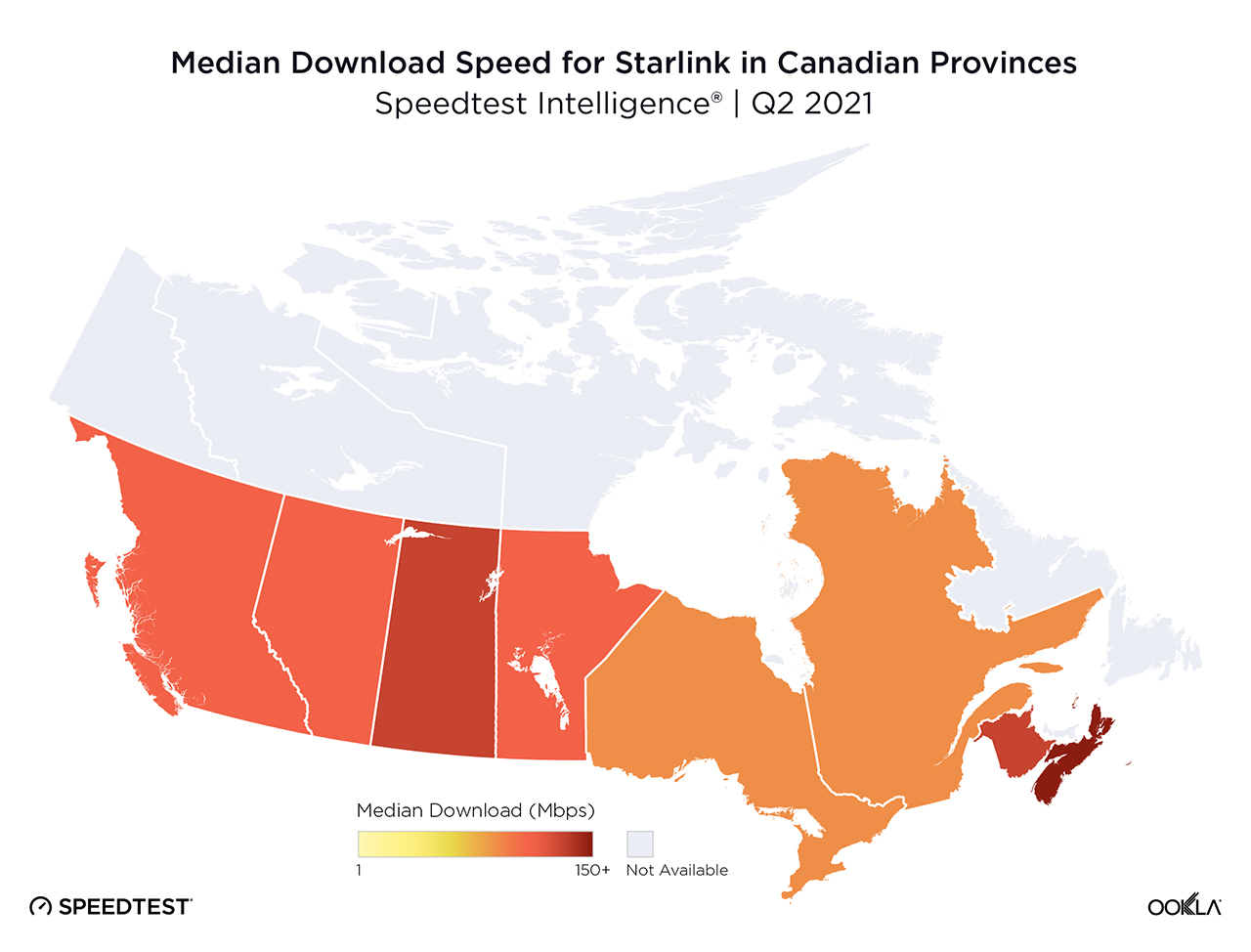Starlink offers faster download speeds than broadband, higher latency: Ookla
Ookla has published its Q2 2021 analysis of SpaceX’s Starlink performance in several countries, including Canada. According to Ookla, Starlink generally beats broadband speeds, but suffers from higher latency.
Ookla gathered the data using its Speedtest platform — you can read a guide to the company’s methodology here. In a blog post, Ookla shared some of its findings for Starlink. To start, Ookla said Starlink saw a median download speed of 86.92Mbps, slightly faster than the median broadband speed of 84.24Mbps.
Starlink’s median upload speed, however, wasn’t quite as good at 13.63Mbps compared to broadband’s 17.76Mbps. Finally, Ookla shared latency data, noting that Starlink’s median latency of 55ms was much higher than the 12ms broadband latency.
At the provincial level, Ookla notes that it gathered enough data to analyze performance in eight provinces. Starlink’s median download speeds were faster than fixed broadband in Manitoba, New Brunswick, Nova Scotia, Quebec and Saskatchewan. However, Ookla noted that it didn’t have many Nova Scotia samples and they “showed enough variability that there is room for interpretation.”
In Alberta and Ontario, median download speeds for Starlink were comparable to fixed broadband, while B.C. saw broadband speeds faster than Starlink.
It’s a significant change from Ookla’s Q1 2021 report, which saw Starlink’s median download speeds roughly 20 to 30 percent slower than fixed broadband in several provinces. Further, Starlink service is expected to improve in the coming months. Elon Musk, CEO and founder of SpaceX, previously tweeted that Starlink speeds would reach around 300Mbps and that latency would drop to around 20ms later in 2021. Those improvements will likely come as the Starlink network stabilizes and leaves its beta phase.

Still, the early results show promise for Starlink, and if speeds continue to outpace broadband, it may be the best option for Canadians. Starlink does come with a hefty start-up cost — the necessary hardware costs $649, shipping costs $65, taxes come to $92 and the service costs $129, which means Canadians need to pay about $935 to get started.
And while $129 per month certainly sounds like a lot, some rural Canadians so far consider it well worth the cost. Canadian internet is already exceedingly expensive — and getting pricier every year — while many rural Canadians are left stuck with speeds that don’t meet the CRTC’s high-speed criteria of 50Mbps down and 10Mbps up. Despite what Bell’s CEO seems to think, it looks like Canadian ISPs will need to step up their game to remain competitive with Starlink in rural regions if the service keeps improving at this rate.
Those interested can learn more about Starlink in Canada here.
Source: Ookla
For all the latest Technology News Click Here
For the latest news and updates, follow us on Google News.
